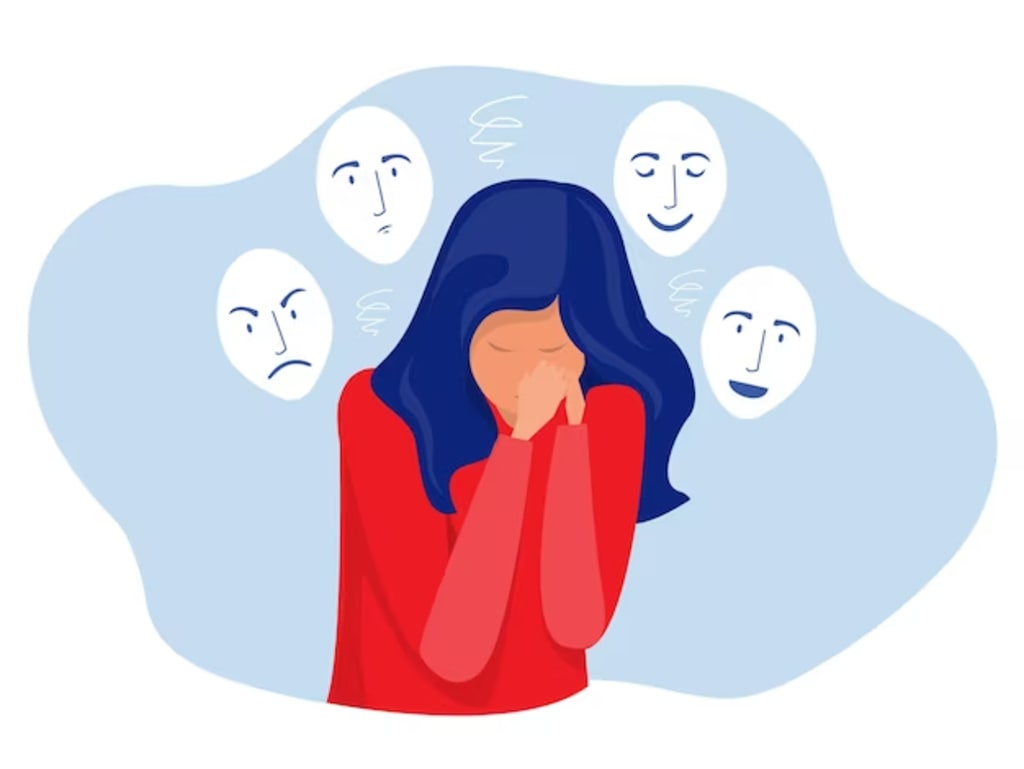Behavioral condition: A social point of view
Personality Disorder: A cultural perspective

Behavioral condition: A social point of view
How do various societies characterize and see behavioral conditions? How really does culture impact the articulation, significance, and effect of explicit character qualities and ways of behaving?
Behavioral condition is a term that alludes to a gathering of mental problems that are portrayed by relentless and maladaptive examples of contemplations, sentiments, and ways of behaving that stray from the standards of one's way of life. Behavioral conditions can influence one's relational connections, mental self view, feelings, and motivation control. A few instances of behavioral conditions are fringe, standoffish, self-centered, and avoidant behavioral conditions.
Nonetheless, the idea of behavioral condition isn't general or goal. It is impacted by the social setting in which it is characterized and analyzed. Various societies might have various definitions and impression of behavioral condition, as well as various approaches to communicating, deciphering, and adapting to explicit character qualities and ways of behaving. Accordingly, it is vital to consider the social parts of behavioral condition while evaluating and treating people with these circumstances.
Social Definitions and View of Behavioral condition Behavioral condition is a Western clinical substance that depends on an idea of oneself and on values that have developed in Western social orders. Behavioral condition outlines the course of medicalization of social way of behaving, which is spreading all through the world. In any case, a large number of the ways of behaving portrayed in behavioral condition characterizations are dish social. Individual behavioral conditions, eminently total disregard for other people, have been portrayed in many societies, yet rates change essentially.
Various societies might have various standards and edges for what is typical or strange character working. For instance, a few societies might esteem community over independence, relationship over independence, congruity over decisiveness, or similarity over uniqueness. These social qualities might impact how individuals view themselves as well as other people, as well as how they judge or endure specific character attributes or ways of behaving.
Also, various societies might have various approaches to marking or naming behavioral condition. A few societies might not have a particular term for behavioral condition or may involve various terms for various sorts or parts of behavioral condition. For instance, in China, there is no comparable term for behavioral condition in the authority mental arrangement framework. All things being equal, there are terms, for example, "character abnormality", "character deviation", or "character issue" that are utilized to portray different types of maladaptive character working 3. In Iran, there is no term for behavioral condition in the Persian language. All things considered, there are terms, for example, "disposition", "character", or "nature" that are utilized to portray various parts of character.
Social Effects on the Articulation and Effect of Character Qualities and Ways of behaving Society can likewise impact how individuals express, decipher, and adapt to explicit character attributes and ways of behaving. Culture can shape the appearance, significance, and effect of specific character qualities or ways of behaving by giving standards, assumptions, scripts, or prompts for social communication. For instance:
1. Culture can impact the declaration of feeling and influence guideline. A few societies might support or beat the presentation of specific feelings or close to home power down. For instance, a few Asian societies might esteem profound limitation or concealment over close to home articulation or revelation . A few societies may likewise have various approaches to managing or adapting to pessimistic feelings. For instance, a few Mediterranean societies might involve externalization or ventilation as an approach to delivering gloomy feelings .
2. Culture can impact the view of self and others and the development of character. A few societies might stress or de-underline the significance of self-idea or confidence. For instance, a few Western societies might esteem self-upgrade or self-advancement over self-analysis or self-destruction. A few societies may likewise have various approaches to characterizing or building one's personality. For instance, a few African societies might involve mutual or social way of life as an approach to characterizing one's self corresponding to other people .
3. Culture can impact the nature and nature of relational connections and social working. A few societies might advance or hinder particular sorts of connections or social jobs. For instance, a few Center Eastern societies might esteem family dependability or progressive system over individual independence or fairness. A few societies may likewise have various approaches to imparting or connecting with others. For instance, a few Latin American societies might involve backhandedness or vagueness as an approach to keeping up with congruity or keeping away from struggle
These social impacts can influence how individuals with behavioral condition experience their side effects, how they are seen by others, and how they answer treatment. For instance, individuals with marginal behavioral condition might have various examples of close to home articulation, mental self portrait, and relational connections relying upon their social foundation. Individuals with egotistical behavioral condition might have various degrees of confidence, pomposity, and qualification relying upon their social setting. Individuals with avoidant behavioral condition might have various levels of social nervousness, disconnection, and aversion relying upon their social standards.
Determination Behavioral condition is a mind boggling and multi-layered peculiarity that is impacted by the social setting in which it is characterized and analyzed. Various societies might have various definitions and view of behavioral condition, as well as various approaches to communicating, deciphering, and adapting to explicit character attributes and ways of behaving. In this way, the appraisal and treatment of behavioral condition need to consider the social parts of character working and the social variety of people with these circumstances.
About the Creator
Nataliya Ozerova
I love topics on history, science and everything beyond human understanding, to learn something new and get surprised every day,I also like healthy lifestyle, politics, law, educational(20 years of being a teacher) and psychological topics.






Comments
There are no comments for this story
Be the first to respond and start the conversation.